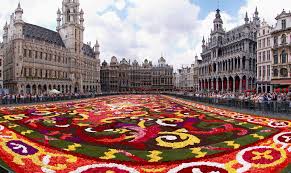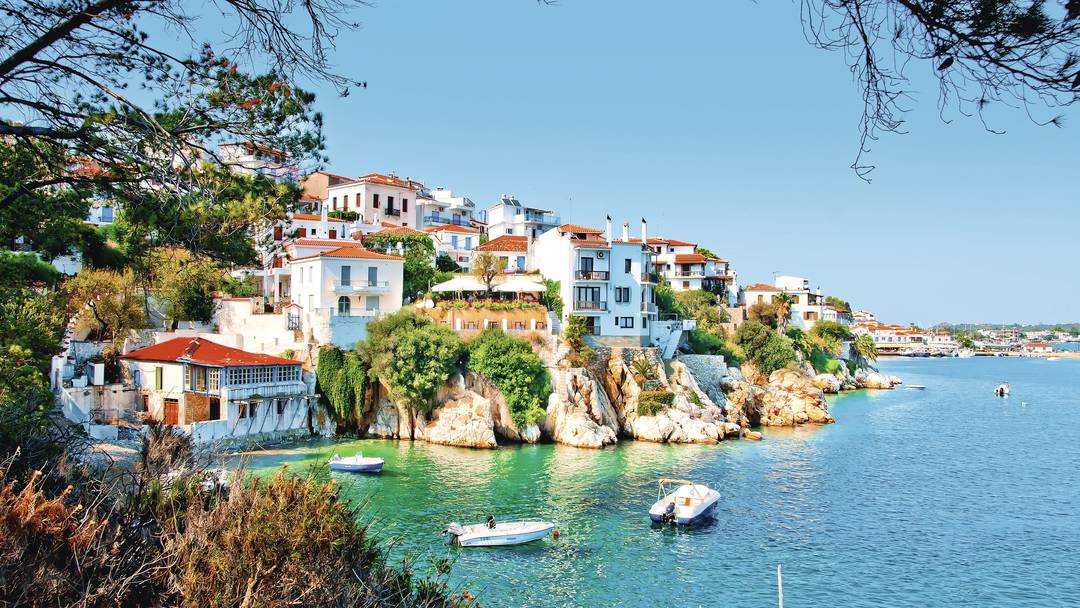Interview Campaign with Translators: Anna Muchin
 |
| Anna Muchin |
by Milena Rampoldi, ProMosaik e.V. – The next interview partner of today is Anna Muchin, a half Greek half French Brussels-based translator with four years
experience in various fields such as art, music, environment, construction…
Milena Rampoldi: What are the principal
linguistic and intercultural problems for translators into and from the
languages you handle?
Anna Muchin: It is when it comes to idiomatisms, humour, cultural and
political questions that the work is the most challenging for it does not have
to do only with terminology, it’s not technical. It’s about translation a
vision of the world that might not exist in the target language. But I chose
this profession because I want to believe that there’s always a way, a bridge,
a path that can be found. I remember trying to find that path since I’m a kid
as I grew up in between France and Greece.

political questions that the work is the most challenging for it does not have
to do only with terminology, it’s not technical. It’s about translation a
vision of the world that might not exist in the target language. But I chose
this profession because I want to believe that there’s always a way, a bridge,
a path that can be found. I remember trying to find that path since I’m a kid
as I grew up in between France and Greece.

MR: What do you think is
important to promote intercultural dialogue?
important to promote intercultural dialogue?
AM: It helps understanding each other, most of the times racism,
intolerance or violence find their roots in ignorance, not hate. We should work
on promoting knowledge, it’s the first step toward empathy.
intolerance or violence find their roots in ignorance, not hate. We should work
on promoting knowledge, it’s the first step toward empathy.
MR: How can translations
improve communication between people and promote a culture of inclusion and
peace?
AM: I
believe that if people have access to information about what else and who else
is out there, and get to know different values and systems through translation,
the chances for them to be tolerant and understanding are higher. We may all be
different but we’re all human and that’s exactly why we should respect each
other.
believe that if people have access to information about what else and who else
is out there, and get to know different values and systems through translation,
the chances for them to be tolerant and understanding are higher. We may all be
different but we’re all human and that’s exactly why we should respect each
other.
MR: How can you explain to
foreigners how different your native language is?
foreigners how different your native language is?
AM: I
often take a idiomatism as an example or a story about few transaltions I did
in the past that were very challenging exactly because I had to build a new
bridget to my native language. Sometimes songs as well children stories can be
a good tool to explain the particularities of a language.

often take a idiomatism as an example or a story about few transaltions I did
in the past that were very challenging exactly because I had to build a new
bridget to my native language. Sometimes songs as well children stories can be
a good tool to explain the particularities of a language.

MR: How can you teach your
language to foreigners in the best way?
language to foreigners in the best way?
AM: Language
is the most lively thing, it should be taught in real life, not necessarily in
a classroom. I’d teach it from daily life, habbits, values, I’d teach it
through my native culture.
is the most lively thing, it should be taught in real life, not necessarily in
a classroom. I’d teach it from daily life, habbits, values, I’d teach it
through my native culture.
MR: What are the principal
problems translators face when they have to translate into a European language?
problems translators face when they have to translate into a European language?
AM: I’ve
experienced already this problem, though Greek is seen as an European language.
The fact is that Greece finds itself in between Western and Eastern Europe, and
we can particularily feel that today with the political context. Again, language
is not only a series of words we put together and can translate through a
software. Language reflects how a country and its people see the world and
divide it into concepts, their history and the cultural aspects of their daily
life. The more two cultures differ from each other the more the translation
gets difficult and raises questions, and especially when it is from an African,
Asian, Eastern language into a European one.
experienced already this problem, though Greek is seen as an European language.
The fact is that Greece finds itself in between Western and Eastern Europe, and
we can particularily feel that today with the political context. Again, language
is not only a series of words we put together and can translate through a
software. Language reflects how a country and its people see the world and
divide it into concepts, their history and the cultural aspects of their daily
life. The more two cultures differ from each other the more the translation
gets difficult and raises questions, and especially when it is from an African,
Asian, Eastern language into a European one.
MR: What does intercultural
awareness and intercultural empathy mean to you?
awareness and intercultural empathy mean to you?
AM: It
means the possibility of a brighter future.
means the possibility of a brighter future.


